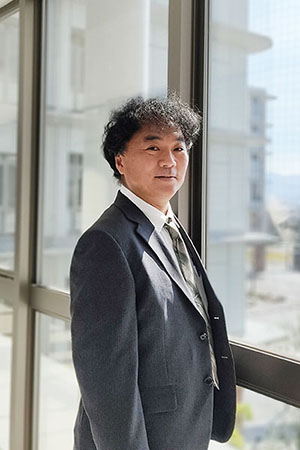Research Area: Integrated Sciences for Sustainable Human-Aqua Environment (Aqua Science)
Representative – Kunio Araya (Chief Professor, Faculty of Social and Cultural Studies, Kyushu University)

Water is the primary source of life, and the ecosystems of forests, farmlands, rivers, and basins from rivers to the sea are home to various living creatures. Humans also benefit from various water functions, including water infrastructure, agriculture, forestry, fishery resources, faith, culture, recreation, cityscapes, and harbors.
However, due to climate change in recent years, heavy rain and other water-related disasters have frequently occurred in many areas of Japan. Additionally, water shortages and water risks have become major issues that are directly related to poverty and education problems worldwide.
Under these circumstances, achieving a society in which water, humans, and living organisms coexist sustainably is extremely important issue for modern society.
Conventional research examining the hydrological cycle that is mainly in the field of natural science has tended to focus on general phenomena with a high emphasis on universality on a global scale. However, for water crises and water risk issues, it is necessary to conduct research that is tailored to the local and environmental conditions. Additionally, in the modern era where human activities have become a major factor in water crises and water risks, a new discipline that encompasses multiple academic fields and integrates information from the natural sciences with knowledge from the humanities and social sciences is required. This is what we are creating with the Integrated Sciences for Sustainable Human-Aqua Environment (Aqua Science).
Aqua Science views the water environment as a “water cycle system” that constantly fluctuates according to the interplay among the three spheres that include the biosphere, the anthroposphere, and the geosphere. This concept proposes a future vision (ideal image of future) that conforms to the local environment to allow the system to be maintained within a sustainable range.
We are convinced that Aqua Science methods, in which different disciplines work together to solve problems, can be applied to solve various issues facing the world today.
